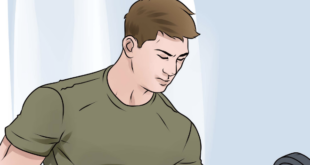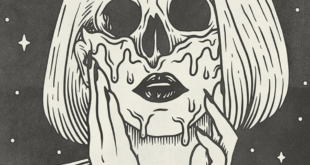Pomidor Quixote
Daily Stormer
January 16, 2020
It turns out that humans need to sleep. Kinda like the other animals.
I’m deeply shocked and offended by this on behalf of our overlords, who were CHOSEN to rule and deserve to have efficient slaves that don’t need to pause and rest.
The “all-nighter,” in which students stay up all night studying or completing school work, has become synonymous with the modern college experience. While it’s obviously unhealthy to stay up all night frequently, the occasional all-nighter isn’t typically considered detrimental to one’s well being. Now, quite surprisingly, a new study conducted at Uppsala University in Sweden has found some alarming evidence to the contrary. When young, completely healthy men went just one night without sleeping, their blood showed elevated levels of the protein tau, a biomarker for Alzheimer’s disease.
Tau proteins are found in neurons, but they tend to become entangled and build up in the brains of those diagnosed with Alzheimer’s. While Alzheimer’s doesn’t actually reveal itself until old age, this accumulation of tau in the brain actually starts decades before any symptoms show themselves.
Moreover, this isn’t the first time that lack of sleep has been connected to tau, various prior studies with older adults had found that poor sleep habits lead to increased tau levels. Head trauma has also been identified as a cause of elevated tau levels.
“Many of us experience sleep deprivation at some point in our lives due to jet lag, pulling an all-nighter to complete a project, or because of shift work, working overnights or inconsistent hours,” says study author Jonathan Cedernaes, MD, PhD, from Uppsala University, in a release. “Our exploratory study shows that even in young, healthy individuals, missing one night of sleep results in a slight increase in the level of tau in blood. This suggests that over time, similar types of sleep disruption could potentially have detrimental effects.”
…
After just one night of sleep deprivation, the men saw their tau levels increase by an average of 17%. For comparison, tau levels only increased by an average of 2% following a normal night of adequate sleep.
“It’s important to note that while accumulation of tau in the brain is not good, in the context of sleep loss, we do not know what higher levels of tau in blood represent,” Cedernaes explains. “When neurons are active, release of tau in the brain is increased. Higher levels in the blood may reflect that these tau proteins are being cleared from the brain or they may reflect an overall elevation of the concentration of tau levels in the brain.”
If you need to skip a sleep cycle for work, college, projects, studies, or whatever reason, something that could work to protect your health would be to take a small nap instead of completely missing having any rest.
Having eight hours of uninterrupted sleep may not even be needed at all in order to be healthy, and some think that it may not even be optimal.
It was recently reported that Cristiano Ronaldo, who is an elite athlete, naps for an hour and a half, five times a day instead of sleeping for eight hours.
Professor Nick Littlehales wrote an important book on sleep, named: ‘Sleep: The Myth of 8 Hours, the Power of Naps… and the New Plan to Recharge Your Body and Mind.’
The sleep pattern for Ronaldo is not to rest for eight consecutive hours. Instead, he breaks it up.
According to Littlehales, it is ideal for a professional athlete to have five small rests of ninety minutes divided up throughout the day.
And Ronaldo has embraced this theory and carries out this methodology every day, even when he is on holiday.
He appears to be doing pretty well following that unconventional schedule.
It may sound obvious, but now that there’s a study suggesting that staying up all night is potentially more dangerous than commonly expected, it would be better to have at least a small nap to let the brain do a bit of housekeeping.
 Daily Stormer The Most Censored Publication in History
Daily Stormer The Most Censored Publication in History






